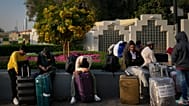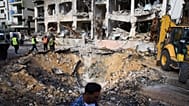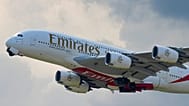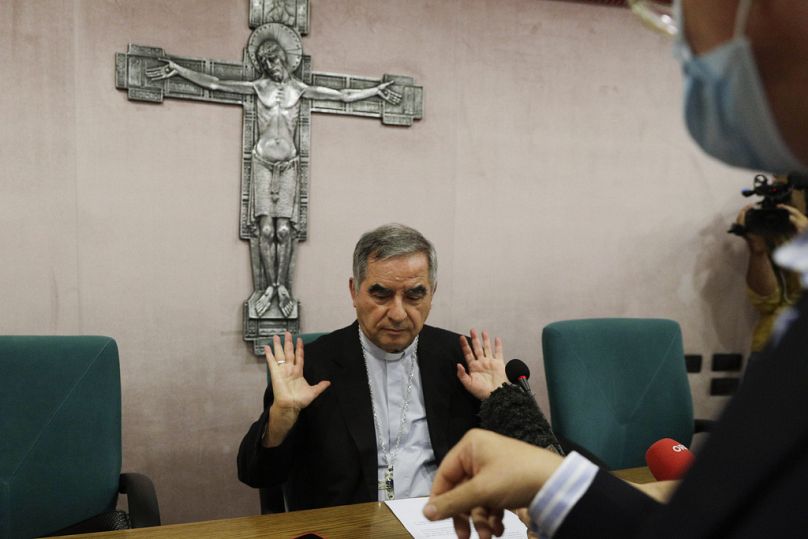The trial of Cardinal Angelo Becciu, a former close advisor to Pope Francis, has come to an end following some 2 years of hearings.
A once-powerful cardinal and nine other people have learned their fate from a Vatican tribunal after they were handed down verdicts in a complicated financial trial that has aired the tiny city state's dirty laundry and tested its justice system.
 ADVERTISEMENT
ADVERTISEMENT
 ADVERTISEMENT
ADVERTISEMENT
Judge Giuseppe Pignatone read out the verdicts of the three-judge panel in the converted courtroom in the Vatican Museums, where prosecutors and defence attorneys have sparred for 2.5 years over the details of a money-losing investment in a luxury London property.
Cardinal Angelo Becciu was found guilty of fraud aand sentenced to five and a half years in prison.
In an unprecedented case, the 75-year-old, a former close adviser to Pope Francis, is the most senior Catholic Church official to appear before the Vatican criminal court, the city-state's civil justice system.
Becciu was the former prefect for the Causes of Saints - the body which decides who will become 'glorious soul'.
He was removed from the post by the Pople three years ago after accusations of embezzlement, abuse of office and subornation of witnesses. Against him the promoter of of justice Alessandro Diddi had asked for a sentence of seven years and three months imprisonment.
Unlike most defendants, Becciu attended nearly all of the 86 hearings, saying Pope Francis clearly wanted him to face court judgement after Francis himself forced his resignation and removed his privileges as a cardinal before he was even charged.
The trial has raised questions about the rule of law in the city state and Francis’ power as absolute monarch, given that he wields supreme legislative, executive and judicial authority and has exercised it in ways the defence says jeopardised a fair trial.
The defence attorneys, while praising Pignatone's even-handedness and saying they were able to present their arguments, lamented the Vatican's outdated procedural norms that give prosecutors enormous leeway to withhold evidence and otherwise pursue their investigation nearly unimpeded.
In addition to Becciu, prosecutors charged nine others with a host of alleged financial crimes stemming from the secretariat of state’s €350 million investment in developing a former Harrods warehouse into luxury apartments.
Prosecutors alleged Vatican monsignors and brokers fleeced the Holy See of tens of millions of euros in fees and commissions and then extorted the Holy See for €15 million to cede control of the building.
Prosecutors were seeking convictions for nearly 50 different charges of fraud, embezzlement, money-laundering, corruption, abuse of office and extortion. They were seeking prison terms from three to 13 years and damages of over €400 million to try to recover the estimated €200 million they say the Holy See lost in the bad deals.
The trial was initially seen as a sign of Francis' financial reforms and willingness to crack down on alleged financial misdeeds in the Vatican, but it had something of a reputational boomerang for the Holy See, with revelations of vendettas, espionage and even ransom payments to Islamic militants.
The secretariat of state, for example, was seeking damages for a marketing campaign to try to repair the reputational harm it says it incurred. Even the Vatican communications department said the trial itself had been a “stress test” for their legal system.
Much of the London case rested on the passage of the property from one London broker to another in late 2018. Prosecutors allege the second broker, Gianluigi Torzi, hoodwinked the Vatican by manoeuvring to secure full control of the building that he relinquished only when the Vatican paid him off 15 million euros.
For Vatican prosecutors, that amounted to extortion. For the defence - and a British judge who rejected Vatican requests to seize Torzi’s assets - it was a negotiated exit from a legally binding contract.
The original London investigation spawned two other tangents that involved the star defendant, Becciu, once one of Francis’ top advisers and himself considered a future papal contender.
Prosecutors accused Becciu of embezzlement for sending €125,000 in Vatican money to a Sardinian charity run by his brother. Becciu argued that the local bishop requested the money for a bakery to employ at-risk youths and that the money remained in the diocesan coffers.
Becciu was also accused of paying a Sardinian woman, Cecilia Marogna, for her intelligence services. Prosecutors traced some €575,000 in wire transfers from the Vatican to a Slovenian front company owned by Marogna.
Becciu said he thought the money was going to pay a British security firm to negotiate the release of Gloria Narvaez, a Colombian nun taken hostage by Islamic militants in Mali in 2017.
He said Francis authorised up to €1 million euros, an astonishing admission that the Vatican was willing to make ransom payment to free a nun.















